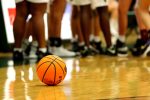Any serious athlete is likely aware of the phrase “DI bound.” There is an undeniable glow around playing NCAA Division I sports, one that effortlessly indoctrinates a countless number of young athletes. Found in the shadows of the favorite child, though, are the slightly less sparkly Division III programs, the ones without the hype or catchy phrases. However, the frenzy around DI sports cannot be ignored.
The Hype Around Division I
For starters, there’s the excitement about committing. As a high school athlete, there is nothing more glorious than the moment you receive a call from a coach inviting you to commit to play your sport for their school. Following that call is the period where you get to tell all your nagging relatives and competitive friends that you have finally solidified your destination and achieved what is likely the most important goal of your young life.
You then get to rep gear from a school that everyone has already heard of (instead of having repeated conversations that go something along the lines of: “I’m going to play for Pitzer College … it’s one of the five Claremont Colleges, do you know about them? … Well, have you ever heard of Claremont Mckenna? No? Never mind.”) There has never been a conversation in the history of humankind that required an introduction to Stanford or Notre Dame.
And what’s better than committing? Standing on stage in front of your unathletic peers with your commitment letter in hand, then afterward using the #d1bound hashtag on your signing day Instagram post. While this is a long tradition for DI players, DIII players were only recently granted the permission by the NCAA to sign a somewhat off-brand commitment letter that isn’t actually binding and is more of a way to let those athletes feel accepted by their #d1bound peers.
It is essentially the difference between a polygamous relationship and a monogamous one. For a DIII athlete, their intended school can continue to talk to other players until the moment the prospective student is actually accepted into the school itself. After a DI athlete signs their letter of intent, there is much more reassurance that the school they plan to attend and play for will remain loyal to their promise.
What’s almost as cool as the social media posts is that, for a DI player, signing that letter oftentimes means collecting a life-changing athletic scholarship, which is often the deciding factor in the college selection process. And while there are many more impressive benefits that Division I athletes receive that other divisions don’t — more kudos, more fancy gear, more news coverage and attention from professional leagues — there are also major downfalls.
The Not-So-Hype About Division I
Committing to play a sport for a DI school is essentially committing to a job. Your athletic scholarship depends on performance and keeps you from quitting no matter your level of passion for your sport, unless you are willing to take the financial blow of having to actually pay for your own education. With almost zero time outside of practice and games, your sport becomes your identity, forcing you to deprioritize not only your social life, but academic and extracurricular experiences as well.
This is not to say that Division I schools kill happiness and create athletic robots who sold their souls to a game. Many DI athletes love their student-athlete experience and wouldn’t trade it for the world. However, there are other ways to enjoy the college athlete experience for those who find that their passion for academics and other activities are just as important as their passion for their sport. In this case, a prospective college athlete may find that Division III athletics are rich with hidden gems that can shine a little brighter than those of Division I.
A True Student-Athlete Experience
Perhaps the biggest attraction of playing for a DIII school is that the dual title, “student-athlete,” is taken extremely seriously, with some schools even proclaiming themselves as “scholar-champions” (which is a little premature to declare at the beginning of a season, in my opinion). Athletes who choose to go DIII likely value their academic experience as much, or more, than their athletic one.
With a less demanding practice schedule, there’s a lot more freedom to choose different courses. While many, say, pre-med students, may see the decision between a training session and a lab as a deal-breaker, most DIII athletes don’t necessarily need to choose. Division III sports require a lot less travel and a lot more restrictions on out-of-season training, meaning there is a deliberate space for classes, studying, tutoring sessions and any other academic-related activities.
And DIII athletes are known to take their role as students to heart. Listening in on the pre-practice banter among DIII players, one will usually hear — sandwiched between strangely detailed descriptions of the food they plan on eating later — invigorating philosophical debates and discussions about Python (or some other computer science term that I don’t know anything about).
In addition to the more student-oriented schedule, coaching staffs are usually the first to remind players of The Division III philosophy that success in the classroom is always the priority (and then remind them again and again). It’s rare for an athlete to be reprimanded for tardiness or absence when the reason is related to academics. As long as there is honest communication between player and coach — something that the small, tight-knit community of DIII schools makes possible — there are few situations where a student-athlete needs to jeopardize their commitment to either of their identities.
Freedom to Do (Almost) Anything
The unique Division III schedule encourages other activities besides academic ones as well. Most sports still have a demanding league and playoff season where the student-athlete has to focus solely on athletics and school, but time off from the sport is what really allows an individual to explore their interests. With around three months without any mandatory training or competition, along with a short and much more lenient “offseason,” athletes are encouraged to enjoy their freedom.
This doesn’t mean showing up to team workouts hungover. This means being free to join that Rubik’s Cube club you’ve been eyeing, to get an internship that you wish paid a lot more, to study abroad in a country that will totally change your life or, for those born with superpowers, to even play multiple sports. The DIII athletic experience is the only one that both emphasizes and allows the importance of well-roundedness and versatility.
Masochism or Passion?
One less obvious benefit of Division III is the fact that the students participating in athletics are doing so solely based on their commitment and love for their respective sports. DIII, unlike the other two divisions, provides no scholarships for athletes. While many students still receive financial aid and academic scholarships, there is no financial benefit to playing a sport at a Division III college.
This means that every player — the ones waking up for 5 a.m. lifts, forgoing the upcoming rager everyone’s talking about and studying for their chem test on the back of the team bus on the way to a game — is playing simply because they want to. If a player decides to stop, nothing happens; there is no financial binding keeping them shackled to their sport.
While this may give players more freedom to quit, it also confirms that every player who stays is getting their motivation from the untamable, competitive fire that burns inside any true athlete. In other words, playing for a DIII school means surrounding yourself with people who are masochistic enough to run the beep test with no other incentive other than their drive to get better. Whether this thought is inspirational or disturbing is entirely up to you.
Decision of Division
At the end of the day, the decision is entirely up to the individual. Nothing will change the fact that playing for a Division I athletic team is an incredible feat that very few will ever accomplish, and getting paid to play a sport you love is an experience most can only dream of. And while Division III programs have undoubtedly less allure on the surface, choosing to play for one may be the best decision an athlete ever makes.
The only real mistake that an aspiring student-athlete can make is to remain in the dark about the different experiences that each division has to offer and choosing to play for a school without checking in with themselves on what they really want from their time in college. And who knows? Understanding the difference may mean that your next Instagram caption will proudly champion the hashtag #d3bound.

















